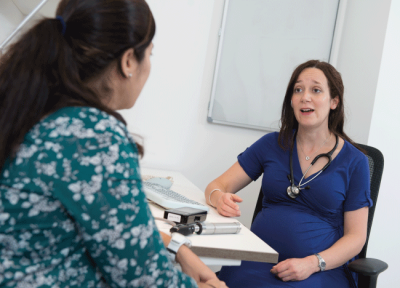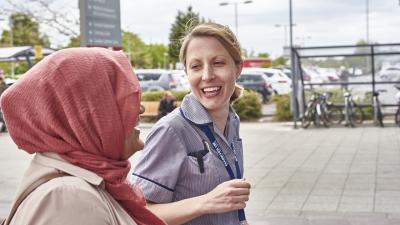Involving people with diabetes to improve care
The user involvement team are here to ensure that the voices of people with or at risk of diabetes are heard and used to inform and improve the NHS diabetes programme.
We know that involving patients, carers and their families in making decisions about their care and treatment can lead to better experiences and outcomes. And now, as local teams plan to make changes to the delivery of health services due to coronavirus, this is more important than ever.
What's new?

User Involvement Grant launched in the Northern region to support projects involving people affected by diabetes
In October we launched a new resource - Involving people in their care - co-produced in the Northern region by people affected by diabetes and working in diabetes.
See the guidelines (PDF, 4.5MB)
We are pleased to now open applications for a small number of Diabetes Involvement Grants, up to the value of £3,000, to support people working on diabetes projects in the northern region to put the guidelines into practice.
The Diabetes Involvement Grant is being launched as a pilot in the Northern region due to the existing momentum and commitment to involvement following the development of the User Involvement guidelines last year. If the pilot is successful in enabling and supporting involvement projects then we hope to launch a similar national offer as well as supporting other regions to adapt and adopt the guidelines.
Understanding participants' experiences of the remote Diabetes Prevention Programme
In April, the NHS Diabetes Prevention Programme (DPP) adapted to continue supporting people across England to reduce their risk of type 2 diabetes despite the lockdown.

Group face to face sessions are now being delivered remotely, by telephone or video call. The individual digital programme has been made available to more people at risk of developing type 2 diabetes.
We have been using interviews and surveys to gather feedback from participants about their experience of attending the DPP remotely. We are now working with the five programme providers to identify where they can use this insight to make improvements to their service and enhance the experience for future participants.
Using people's experience of remission
In the autumn, the NHS diabetes programme is launching a pilot service to support more people to put their type 2 diabetes into remission using a Low Calorie Diet (LCD). Last year, Diabetes UK commissioned qualitative research into the experiences of people who had attempted to put their type 2 diabetes into remission through a number of methods and ran a follow-up survey on remission. We are working closely with the LCD pilot to make sure that it is informed by this insight and that when the programme starts, feedback from those who take part is collected and used to evaluate the service.
The future of diabetes care
The global pandemic is changing our world and health systems profoundly. As local teams plan to make changes to the delivery of health services due to coronavirus, involving involving patients, carers and their families is more important than ever.
From June, Diabetes UK are running ChangeLabs to use this opportunity to shape the changes we want to see happen in diabetes care. In the first phase of the Lab we are hosting a series of community conversations with healthcare professionals and people affected by diabetes to explore what we are learning during this time and what it means for the future of diabetes care.
Current sessions are now wait list only, but if you are interested do sign up in case spots become available - we will be offering more sessions in the near future.

Connect with us
Have you involved people affected by diabetes in setting up, influencing or feeding back on diabetes services?
Share an example of what you are doing and the impact it had, what you learnt in the process or questions you have to help others to improve their practice.
If you have any questions or would like to be added to our mailing list to receive updates about user involvement in the Diabetes Programme, please get in touch at involvement@diabetes.org.uk
